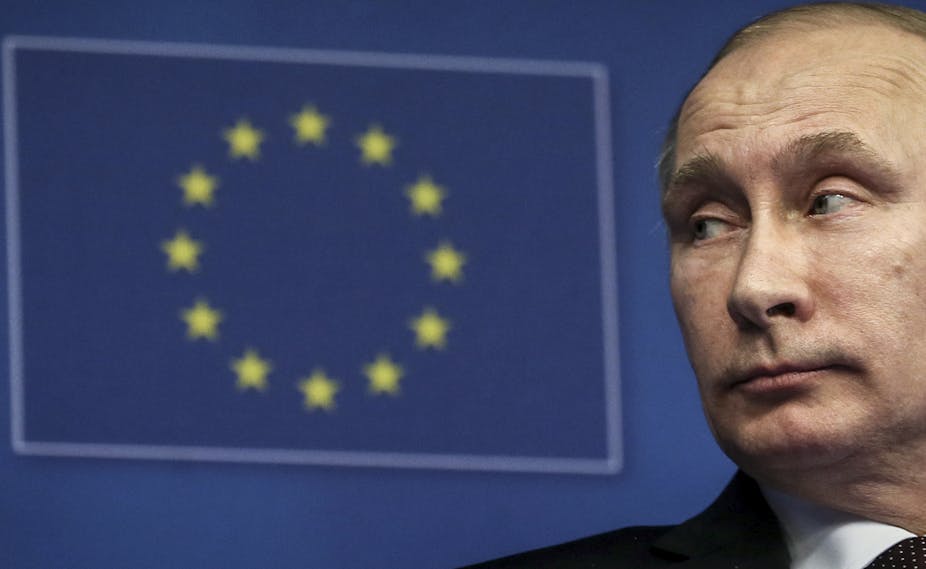Over the past three years, Russia has been repeatedly accused of infiltrating democratic elections in the West. It is suspected of supporting anti-establishment movements on both the left and right through a mixture of financial support, intelligence sharing, and, perhaps, even through the use of cyber weapons.
Russia has undergone a staggering transformation in this time. It was once something of an afterthought in international affairs with seemingly no credible public diplomacy capabilities. Now, it is the perceived source of the existential crisis gripping the West. The truth, of course, is somewhere in the middle. Russia was never as weak as many in the West thought but, in turn, is not as strong as many currently believe.
Rather than using some kind of magic weapon, Russia has mainly exploited a major weak spot in Western democracies – the corruptibility of elections.
Elections are not meritocratic – they favour candidates with power, status, and money. And usually, candidates require significant external support to fund their campaigns, meaning that interest groups - including foreign powers - can often wield significant influence.
The Mueller Report in the US, for instance, found that Russia’s lobbying tactics “consisted of business connections, offers of assistance to the campaign, invitations for candidate Donald Trump and Vladimir Putin to meet in person, invitations for campaign officials and representatives of the Russian government to meet, and policy positions seeking improved US-Russian relations.”
In addition to lobbying, Russia has arguably also sought to promote anti-establishment sentiments in the West by positioning itself as a traditional and conservative power. Through its RT news network, Russia has seemingly had some success in fanning the flames of discontent in Europe, especially with regards to topics like the EU, the refugee crisis, and Islamic terrorism.
The problem here is that elections naturally encourage populism and demagoguery as winning the majority of votes is the aim of the game. If Russia is able to find fertile ground for its anti-establishment message among Western publics, it can then indirectly influence a state through its own democracy.
All of this has existed for some time, however, and it certainly isn’t uniquely a Russian tactic. Powerful states – including powerful democracies – have promoted their regime preferences in foreign countries for centuries. One early instance was when the French interfered with the 1796 US presidential election to help its favoured candidate, Thomas Jefferson.
Vulnerable Brussels
The upcoming European Parliament elections are particularly vulnerable to potential Russian influence because, frankly, the European Parliament is an institution with scant public credibility at a time when Europe’s divisions are high.
Despite the EU’s conscious efforts to address its purported democratic deficit over the years – including giving the parliament powers such as budgetary authorisation and the power to select the Commission president – popular perceptions continue to trend downwards.

In the 2014 European elections, roughly a third of voters held “malcontented” views of the EU. Given many of the same crises that dominated the 2014 election have not dissipated, it is fair to believe that a similar result – if not worse – will occur this time.
Russia may well, therefore, seek to capitalise on this discontent to undermine the European Union further by supporting parties and candidates that are openly anti-establishment, such as Marine Le Pen’s National Rally and Matteo Salvini’s Lega Nord. This support could be both financial and discursive.
Power to the people
However, the EU needs to be wise and see Russia as a symptom, not a cause of its democratic failings. Improving its democratic mechanisms is one way the EU can insulate itself from external interference.
Former Greek finance minister Yanis Varoufakis has taken up this challenge with his DiEM25 movement. DiEM25 aims to “transform Europe (by 2025) into a full-fledged democracy with a sovereign parliament”. However, for all its lofty goals (which are commendable), the DiEM25 movement fails to consciously detach itself from a reliance on elections as the main mechanism of democracy.
The answer might nevertheless still be found in Greece. Not from Varoufakis and his ideas but from Classical Athens. The Athenians were well aware of the negative effect of elections - which they saw as a conduit to oligarchy – and rather emphasised the role of citizens in the everyday running of the state.
To maximise citizen input, the Athenians used a lottery system called sortition to randomly select citizens from the Ekklesia (an assembly open to all citizens) to sit on the Boule (the council) and the Heliaea (the court). Elections were used only to select magistrates who presided over military, economic and societal affairs, and these positions were strongly scrutinised by the Boule and Heliaea.
There are significant democratic advantages of a system based on the deliberation and decision making of ordinary citizens randomly selected by lotteries. It is fairer than voting because it removes the privilege of those with power, status, and money and produces an unbiased cross-section of society (it does not discriminate against gender, ethnicity or sexuality). And with no specific candidates to target, interest groups and foreign governments would lose some influence.
The European Parliament is an ideal institution to try such a radical idea because it cannot sink any lower in terms of popular legitimacy.
After all, one of the key roles the European Parliament is designed to perform is the democratic oversight of the other institutions of the EU. So, what better way of doing that than using a random selection of ordinary citizens from the EU’s member states?
Something as seemingly crazy as selecting the European Parliament via sortition would not only offer a radical solution that could have real positive democratic effects but it would help safeguard from any potential external interference (not to mention internal interference). It could also turn the EU from a punchline to an inspiration; a force for reinvigorating democracy on the European continent.

